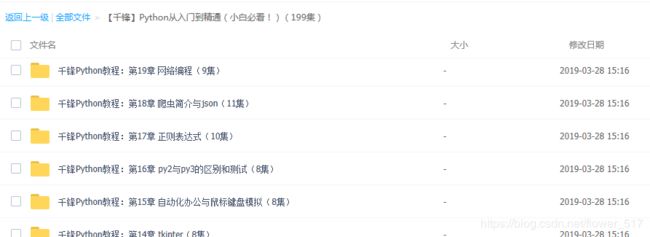Python入门-循环技巧介绍
本篇文章给大家带来的内容是关于Python循环的技巧介绍,有一定的参考价值.
本文摘自千锋教育《Python快乐编程》
当在字典中循环时,用 items() 方法可将关键字和对应的值同时取出
>>> knights = {'gallahad': 'the pure', 'robin': 'the brave'}
>>> for k, v in knights.items():
... print(k, v)
...
gallahad the pure
robin the brave
当在序列中循环时,用 enumerate() 函数可以将索引位置和其对应的值同时取出
>>> for i, v in enumerate(['tic', 'tac', 'toe']):
... print(i, v)
...
0 tic
1 tac
2 toe
当同时在两个或更多序列中循环时,可以用 zip() 函数将其内元素一一匹配。
>>> questions = ['name', 'quest', 'favorite color']
>>> answers = ['lancelot', 'the holy grail', 'blue']
>>> for q, a in zip(questions, answers):
... print('What is your {0}? It is {1}.'.format(q, a))
...
What is your name? It is lancelot.
What is your quest? It is the holy grail.
What is your favorite color? It is blue.
当逆向循环一个序列时,先正向定位序列,然后调用 reversed() 函数
>>> for i in reversed(range(1, 10, 2)):
... print(i)
...
7
3
如果要按某个指定顺序循环一个序列,可以用 sorted() 函数,它可以在不改动原序列的基础上返回一个新的排好序的序列
>>> basket = ['apple', 'orange', 'apple', 'pear', 'orange', 'banana']
>>> for f in sorted(set(basket)):
... print(f)
...
apple
banana
orange
pear
有时可能会想在python循环时修改列表内容,一般来说改为创建一个新列表是比较简单且安全的
>>> import math
>>> raw_data = [56.2, float('NaN'), 51.7, 55.3, 52.5, float('NaN'), 47.8]
>>> filtered_data = []
>>> for value in raw_data:
... if not math.isnan(value):
... filtered_data.append(value)
...
>>> filtered_data
[56.2, 51.7, 55.3, 52.5, 47.8]

